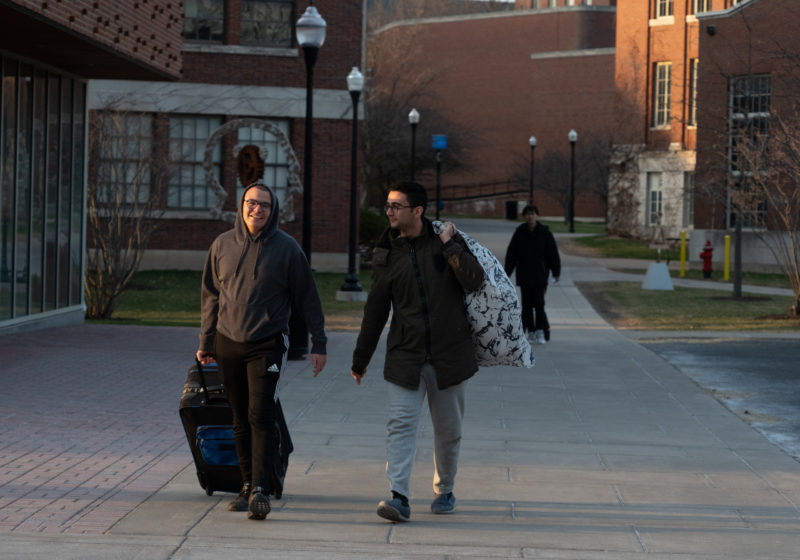UR has extended spring break to end on March 23, at least partially in response to a push by students.
At the beginning of break, UR had been slated to resume classes on March 16, but moved the start to March 18 when the shift to online classes was announced in response to the COVID-19 outbreak.
The new extension “will allow extra time for instructors to complete their preparations for remote teaching, and for undergraduates who are returning home to move out of their residence halls without having to take classes at the same time,” Provost Robert Clark wrote Monday night in an emailed announcement to students, staff, and faculty.
Clark wrote that the extension applies to the College of Arts, Science, and Engineering (AS&E), the Eastman School of Music, “and some other schools.”
Graduate classes and Simon Business School and some classes that have already resumed like those at the Warner School of Education will continue without the delay, Clark wrote.
The email said that the decision to extend break was made in response to “students’ and parents’ requests.”
In the days leading up the change, many students had been pressing for the extension through SA government petitions.
On March 13, days after the first delay in classes and the move to online teaching were announced, Senior Jimmy Yang submitted a petition on SA’s Impact website asking AS&E administration to amend their plan of action. One of the requested changes was to extend the break longer than the March 18 resumption. The campus move-out deadline is March 22, so students would still be moving out after classes had begun.
“[A March 23 start date] would allow for moving out to be less chaotic,” the petition read, “since we will not have to worry about classes, exams, and assignments during that time.”
Any student petition on the Impact website that receives 250 or more student signatures, must be addressed by SA government. As of 11 p.m. on March 16, the petition has received 924 signatures.
A second petition posted by first-year Syed Sabeet Raza Kazmi on March 15 was dedicated solely to emphasizing the break extension request in the first petition. Kazmi wrote that the extension was important in helping students who are financially dependent on UR as well as students whose room and board situations are in flux.
“Without acknowledgement of these issues and insecure living, housing, financial, dining and health circumstances for students, the learning process becomes highly inequitable,” Kazmi wrote. As of 11 p.m. on March 16, his petition got 931 signatures.
On the popular student Facebook page Overheard at Rochester, one student posted a screenshot of the email, writing “Overseen in our emails: they listened to us!”
Another posted, “Overheard outside Crosby after a certain email was just sent out ‘NO! I’M TIRED OF SPRING BREAK!’” (Yang commented below: “You can’t please everybody.”)
Several of the other requests listed on Yang’s petition asked that more students be allowed to stay on campus.
An March 12 email from Dean of the College of AS&E Jeffrey Runner said students would only be exempt from leaving campus if they face travel restrictions, housing insecurity, or come from a country with a Center for Disease Control warning level of 2 or 3 and a US Department of State level of 3 or 4. In order to get such an exemption, students must submit an request online.
Yang’s petition asked to expand the criteria included domestic students from areas like Seattle hit harder by COVID-19, students who didn’t leave Monroe County for spring break, students who live with immunocompromised people or people with respiratory illnesses at home, and “students who come from toxic, dysfunctional, or abusive home environments.”
An email from SA leadership on March 16 urged all students who believe they have good reason to submit requests.
Provost Clark’s email concluded by thanking students.
“I realize circumstances seem to be changing by the minute; we are trying to address these changes in real time and make decisions in the best interests of our community.”


